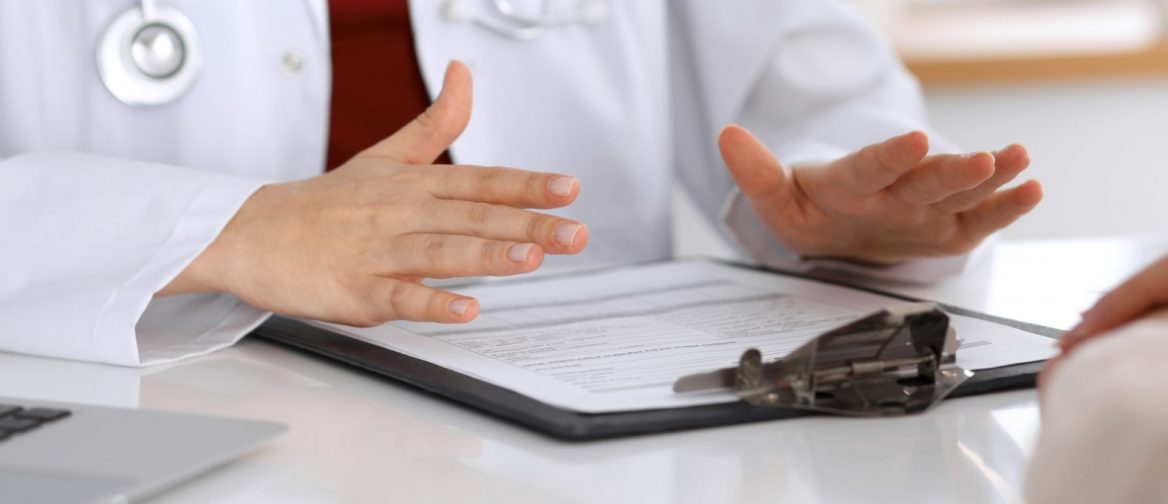6 Possible Causes Of Your Epigastric Pain & What You Can Do

Abdominal pain is common and can be caused by many factors, such as caffeine, taking certain medications on an empty stomach, or food poisoning.
If you experience discomfort or pain in the upper or middle portion of your abdomen, often on the left side of your body just below the ribs, you could be experiencing epigastric pain. The affected portion of your body is where you will find your liver, parts of the small intestine, pancreas, and stomach.
The thing about epigastric pain is that it is not always a significant call for concern. Most of the time, the pain is mild and disappears on its own after a couple of days. However, if it lasts for a long time and is often a sharp kind of pain, you have to see your healthcare provider as soon as possible.
What does it feel like during epigastric pain?
Epigastric pain can feel like a cramping, aching, or burning sensation. It may come and go quickly or occur periodically. It might worsen after lying down, drinking, or eating. Its exact feeling depends on the underlying cause. However, it often occurs alongside other gastrointestinal symptoms, such as flatulence, bloating, vomiting, nausea, and heartburn.
What might cause epigastric pain?
1. Pancreatitis
Pancreatitis is inflammation of the pancreas. It can be an acute condition that appears and disappears suddenly or a chronic condition that only worsens over time. Prolonged inflammation can lead to severe pancreas cancer symptoms.
2. Gallbladder disease
The gallbladder is a tiny organ that helps to store some bile that is to be sent to the small intestine to break down food. Gallbladder disease refers to any disorder that affects gallbladder health, such as gallstones, cholecystitis, and gallbladder cancer.
3. H. pylori infection
pylori infection happens when the bacteria, also known as H. pylori, infects your stomach. It can cause ulcers to develop in the stomach lining or the duodenum.
4. Peptic ulcer
Peptic ulcers are open sores that form on the inner stomach lining and the duodenum. The pain is only made worse during an empty stomach.
5. Medication reaction
Certain non-steroidal anti-inflammatory medications (NSAIDs), such as aspirin, Aleve, Motrin, and Advil, can cause epigastric pain by irritating your stomach.
6. Heartburn and acid reflux
Heartburn is the burning sensation in the chest that is usually caused by acid reflux, which is when stomach acid travels up the oesophagus. If it occurs too often, it may lead to the development of GERD.
What can you do about epigastric pain?
Managing epigastric pain depends on the cause. If you are experiencing mild, dull pain, you can attempt to make specific changes to your lifestyle and diet, such as consuming smaller meals, avoiding food containing lots of acid, fats, and spice, or sitting upright for at least half an hour after a meal. You can also drink more water, maintain a healthy weight, not smoke, and manage stress triggers.
If such lifestyle modifications are not relieving the discomfort and pain, you need to seek timely gastroenterology checkups.
Conclusion
Depending on your experience symptoms and preliminary examinations, your healthcare provider might order further tests, such as an upper endoscopy or a biopsy, to further determine the cause of your epigastric pain. However, no matter the severity of your epigastric pain, it is always best to consult a doctor so that you can treat the underlying cause early, preventing any further complications.
Here at GUTCARE, our team of healthcare professionals is experienced in managing gut-related conditions. Get your pain assessed and treated effectively. Do not delay your treatment process.
Click here to make an appointment with us today!

HAVE AN ENQUIRY?
You may also send in an enquiry via our online form if you have questions pertaining to your visit or consultation.

FIND OUT MORE ABOUT OUR DOCTORS
Unsure of which doctor to speak to? Take a look at our doctors’ profile to find out more.




